The annual shots that your dog requires each year are very, very important. The combination shot prevents these diseases.
Distemper: An infectious, viral disease occurring in dogs. Characterized by loss of appetite, catarrhal(increase flow of mucus)discharge from eyes and nose, vomiting, fever, lethargy and partial paralysis caused by the destruction of myelinated nerve tissue and sometimes death. Also called Canine Distemper.
Canine Hepatitis: Acute viral disease, especially in dogs and foxes. The causative agent, an adenovirus, is not infectious to humans. Transmission occurs mainly by direct contact with infected animals. Virus can be passed through the urine for up to 1 yr. Dogs of any age are susceptible. Incubation period is 6 to 9 days. Symptoms are fever, loss of appetite, congested mucous membranes and pain in the region of the liver. Mortality is about 10%, and about 25% of the survivors develop a temporary corneal opacity(Hepatitis Blue Eye). Treatment consists of administration of intravenous fluids, antibiotics and vitamins. Annual vaccinations with a modified live virus will give permanent prevention.
Leptospirosis: Infectious disease of domestic animals, especially swine, cattle and dogs, caused by Spirochetes(any of the various slender, spiral, motile bacteria of teh order Spirochaetales) of the genus Leptospira and characterized by jaundice and fever.
Canine Parvo: Virus that attacks the canine digestive system of puppies. It spreads through infected feces. It survives in the environment for 5 mo. or more, clinging to shoes, floors, beds and other surfaces where it can infect the next unprotected puppy to enter the area or house. It is resistant to most household cleaners, but CAN be killed with bleach. The disease can decimate a kennel, litter, shelter or pet store. Kennels that experience the disease often close until they bleach every surface, towel and dog bed. The incubation is 7-14 days. Symptoms include lethargy, loss of appetite and vomiting. Followed within 24 hours by high fever(106) and profuse, often bloody diarrhea. The dogs abdomen is tucked up and the puppy appears to be in extreme pain. Some puppies only show the 1st stage of depression and abdominal pain, then they go into shock and die. This is the disease that the Kanawha-Putnam Animal Shelter is dealing with now.
Parainfluenza: A virus that along with the Hepatitis virus can cause upper respitory infections.
Puppy Vaccination Schedule: 6-8 wks. - 1st combination - DHLPP/c
9 weeks - 2nd combination - DHLPP/c
12 wks. - 3rd combination + possibly a Lyme
Disease innoculation.
16 wks. - last combination - DHLPP + Rabies
vaccine. The rabies vaccine is
given.
The Rabies vaccine can be either a 1 yr. vaccine or a 3 yr. The 3 yr. vaccine is usually given to older dogs.
Special consideration: Many vets believe some breeds such as Rottweilers and Dobermans should have at least 2 Parvo vaccines, with at one being given at 20 wks. of age. Bloggers note: I had a male Rottweiler years ago that contracted Parvo at 6 mo. of age. He came through very well, but it was very, very hard on him. His name was: Cratty's Von Maxwell.
Kallee and Tamara

A Beautiful Summer Day.
Madam Kallee, CTD, CGC - 1994-2005 - Certified Therapy Dog and a Canine Good Citizen

I am so pretty!
Kallee, T.D.I., CGC - Certified Therapy Dog and a Canine Good Citizen - 1994-2005

I loved to pose for the camera.
Hat Girl.

The things I do for my mom!
Happiness.

Bubby knows how to scratch a tummy.
Best of Friends.

Mine! No, Mine!, No Mine!!!
Whew !

Bubby wears me out!
This is the Life.

Just relaxing with bubby.
Kallee and Mr. Monkey
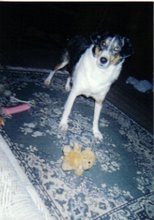
See Mr. Monkey? Wanna play?
Miss Cool.

I loved to wear my shades.
Subscribe to:
Post Comments (Atom)



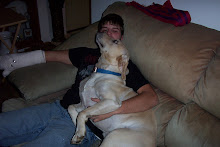
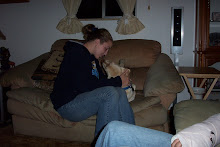
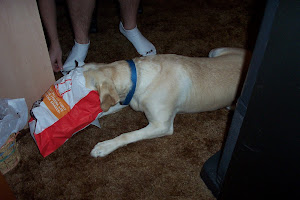


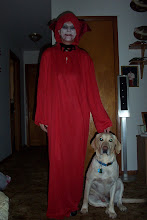

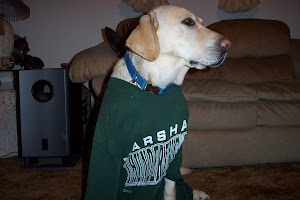

























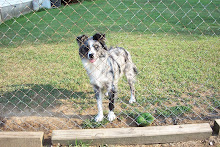



















No comments:
Post a Comment